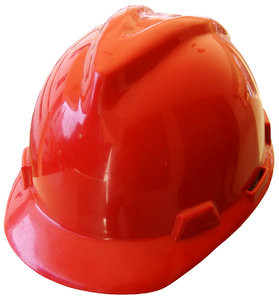Panoke v. Reef Dev. of Hawaii, Inc. is a case from the Supreme Court of Hawaii. Claimant started working as in ironworker during the month of February 2004. He was hired to perform strenuous physical activities. His responsibilities included negotiating scaffolding, carrying buckets that weight more than 50 pounds to the scaffolding, using a jackhammer, and using pulleys to lift heavy items.
 On one occasion, he was working for employer on a construction site. He was responsible for assisting with an effort to build a wall with the use of large concrete panels. During the construction, other crewmembers were using pulleys to lift large concrete panels when one of the panels partially broke free from the chains used to hold it, and it swung abruptly to one side. At this point, employee was guiding the panel with his hands from ground level. The panel did not hit worker, but it did cause him to jerk forward sharply, and this resulted in a serious back injury. He immediately reported having a sharp pain in his back. However, at the time, he did not report having any pain in his shoulders. At this point, claimant was taken to a medical center directly from the jobsite, where scans were performed on his lower back. Doctors diagnosed him with a lower back strain. He was told not work the rest of the day, and he could return the following day but could only perform light duty.
On one occasion, he was working for employer on a construction site. He was responsible for assisting with an effort to build a wall with the use of large concrete panels. During the construction, other crewmembers were using pulleys to lift large concrete panels when one of the panels partially broke free from the chains used to hold it, and it swung abruptly to one side. At this point, employee was guiding the panel with his hands from ground level. The panel did not hit worker, but it did cause him to jerk forward sharply, and this resulted in a serious back injury. He immediately reported having a sharp pain in his back. However, at the time, he did not report having any pain in his shoulders. At this point, claimant was taken to a medical center directly from the jobsite, where scans were performed on his lower back. Doctors diagnosed him with a lower back strain. He was told not work the rest of the day, and he could return the following day but could only perform light duty.
Employer did not contest the fact that worker was injured on the job and approved an initial claim. However, worker was unable to return to work even with light duty due to the amount of pain he was experiencing. He decided to see another doctor for a second opinion. This doctor performed various tests and determined that worker had a lumber strain but also had right leg sciatica. He restricted claimant from performing any work until his condition improved.
At this point, worker’s shoulder started hurting, so he went back to this doctor. At that time, his doctor also diagnosed him with a shoulder strain and kept him on off-work status. He now had pain in both shoulders and went to an orthopedic surgeon. The surgeon noted that claimant had prior damage to his shoulders from a 1991 accident. He did not perform surgery at that time. He then went to another doctor to see what could be done about his shoulder pain. The new doctor concluded his shoulder injury was not a result of his recent accident; rather, it was likely caused by a motorcycle accident in 1991. His employer denied benefits for the injuries, saying they were not work-related injuries. The workers’ compensation commission agreed, and his claim was dismissed with respect to those allegations.
Claimant appealed, and the intermediary court of appeals affirmed trial court’s ruling. This is not surprising, since most appeals at this level are not successful. However, on appeal to the state supreme court, the court concluded that the evidence to rebut the presumption was in favor of developing a record and reversed and remanded the case for further proceedings.
If you or someone you love has been injured in a Boston work accident, call for a free and confidential appointment at (617) 777-7777.
Additional Resources:
Panoke v. Reef Dev. of Hawaii, Inc., December 18, 2015, Supreme Court of Hawaii
More Blog Entries:
Increased Fines for Employers Who Do Not Maintain Workers’ Compensation Coverage, July 22, 2014
 Massachusetts Workers Compensation Lawyers Blog
Massachusetts Workers Compensation Lawyers Blog

